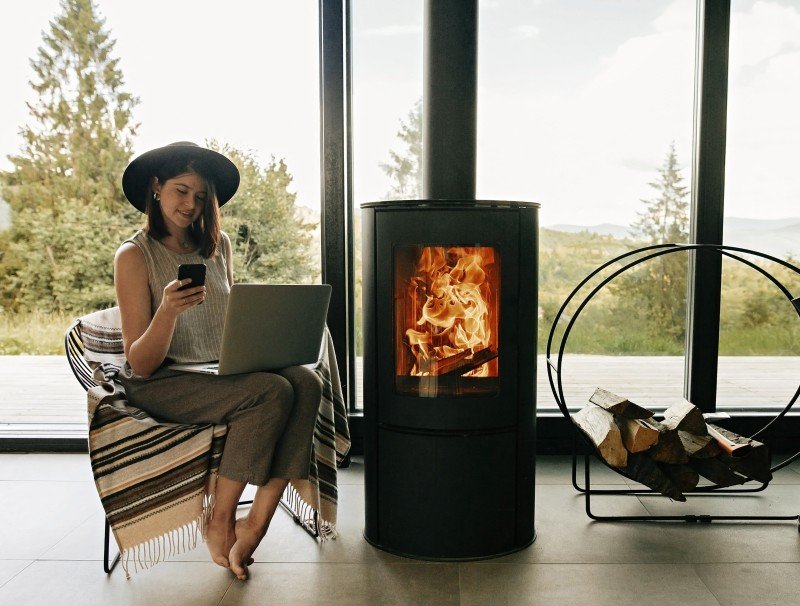
Best Fireplace Online
Add a review FollowOverview
-
Founded Date June 21, 1911
-
Sectors Technology &Product
-
Posted Jobs 0
-
Viewed 1
Company Description
See What Fireplaces And Stoves Tricks The Celebs Are Utilizing
The Comprehensive Guide to Fireplaces and Stoves
Fireplaces and stoves have actually been integral to human civilization for centuries, serving as a source of warmth, light, and comfort. These appliances can be found in different types and have actually evolved over the years, catering to diverse preferences and technological developments. This article offers a helpful summary of fireplaces and stoves, highlighting their types, advantages, upkeep ideas, and setup factors to consider.
Types of Fireplaces
The world of fireplaces is abundant and varied. Here are the most typical types:

-
Wood-Burning Fireplaces:
- Traditional and captivating.
- Needs skilled wood and routine maintenance.
- Produces a pleasant scent and crackling noise.
-
Gas Fireplaces:
- Offer convenience and ease of use.
- Readily available in vented and Direct Vent Stoves Online-free choices.
- More efficient and cleaner than wood-burning alternatives.
-
Electric Fireplaces:
- Provide ambiance without the need for a chimney.
- Easy to use with push-button control options.
- Can be used as an extra heat source.
-
Pellet Stoves:
- Use compressed wood pellets as fuel.
- Extremely efficient and eco-friendly.
- Typically geared up with thermostats for temperature control.
-
Ethanol Fireplaces:
- Utilize bioethanol fuel, making them portable.
- Do not require venting, which permits versatile placement.
- Produce a sensible flame with very little smoke.
-
Outdoor Fireplaces:
- Designed for outdoor settings; can be wood or gas-burning.
- Great for amusing and enhancing yard visual appeals.
- Frequently constructed from stone, brick, or metal.
Benefits of Fireplaces and Stoves
Including a fireplace or stove into a home provides many benefits:
- Aesthetic Appeal: Fireplaces act as striking centerpieces in any room, including warmth and character to home decoration.
- Increased Property Best Value Fireplaces: Homes with functional fireplaces tend to have greater resale values.
- Energy Efficiency: Modern fireplaces and stoves are created to be more energy-efficient, which can cause decreased heating costs.
- Backup Heating Source: In case of power blackouts, wood-burning and gas fireplaces can work as important heating sources.
- Versatile Heating Solutions: Different types of fireplaces accommodate different heating requirements and lifestyles, from cozy ambiance to efficient heating.
| Type of Fireplace/Stove | Fuel Source | Efficiency Rating | Maintenance Level |
|---|---|---|---|
| Wood-Burning | Wood | Moderate | High |
| Gas | Natural gas/LP | High | Low |
| Electric | Electricity | High | Extremely Low |
| Pellet | Wood pellets | High | Moderate |
| Ethanol | Bioethanol | Moderate | Low |
| Outdoor | Wood or gas | Moderate | Varies |
Maintenance Tips
Appropriate upkeep extends the life of Fireplaces And Stoves (Delbertgroup.Com), making sure security and efficiency. Here are some essential ideas:
-
Regular Cleaning:
- Wood-burning fireplaces ought to be cleaned after a full season of usage to get rid of soot and creosote.
- Gas fireplaces need regular evaluation of the burner and vents.
-
Routine Inspections:
- Have chimney sweeper carry out yearly evaluations to determine blockages or structural damage.
- Inspect the seals and gaskets on gas units to prevent leakages.
-
Fire Safety:
- Install smoke and carbon monoxide gas detectors in homes with fireplaces or stoves.
- Keep a fire extinguisher near the fireplace or range for emergency situations.
-
Usage Quality Fuel:
- For wood-burning units, constantly utilize seasoned wood; prevent treated or painted wood.
- When utilizing pellets, guarantee they are saved appropriately to avoid wetness absorption.
-
Manage Airflow:
- Keep vents and ducts clear to promote efficient ventilation and air flow.
- Think about using glass doors or screens to minimize debris and ash in the home.
Setup Considerations
Setting up a fireplace or range requires careful consideration of numerous factors:
-
Location:
- Choose an area that permits proper clearance and ventilation.
- Consider the design of your home and the benefit of natural heat distribution.
-
Structure Codes and Permits:
- Check regional guidelines relating to installations and needed permits.
- Engage a professional to ensure compliance with security requirements.
-
Fuel Type:
- Evaluate your fuel choices based on availability, expense, and environmental impact.
- If going with gas, guarantee existing gas lines can accommodate the new appliance.
-
Ventilation:
- Proper venting is crucial for safety and efficiency, particularly for gas and wood-burning systems.
- Seek advice from an expert to determine the Best Wood Stoves venting option.
-
Aesthetic Consideration:
- Select a style that matches your home’s interior.
- Consider mantels, surround products, and colors that match your design.
Frequently asked questions
What is the best type of fireplace for heating?
Gas fireplaces are usually more efficient for heating, while wood-burning fireplaces provide more ambient warmth.
How often should I clean my fireplace?
Wood-burning fireplaces must be cleaned up a minimum of when a year, while gas fireplaces require less frequent attention depending on use.
Can I set up a fireplace myself?
While some homeowners might try DIY installation, it is recommended to hire an expert to ensure security and compliance with building regulations.
Are electric fireplaces efficient?
Yes, electric fireplaces are really efficient and can function as reliable supplemental heating sources, specifically in smaller areas.
What is the life-span of a fireplace?
The lifespan of a fireplace varies depending on the material, type, and upkeep; however, a well-kept wood-burning fireplace can last over 30 years.
Fireplaces and stoves stay classic features in homes, providing warmth and ambiance. Comprehending the various types, advantages, and upkeep requirements can assist property owners make notified decisions about setup and care. With cautious preparation and regular upkeep, these appliances can enhance both the comfort and value of a home for several years to come.